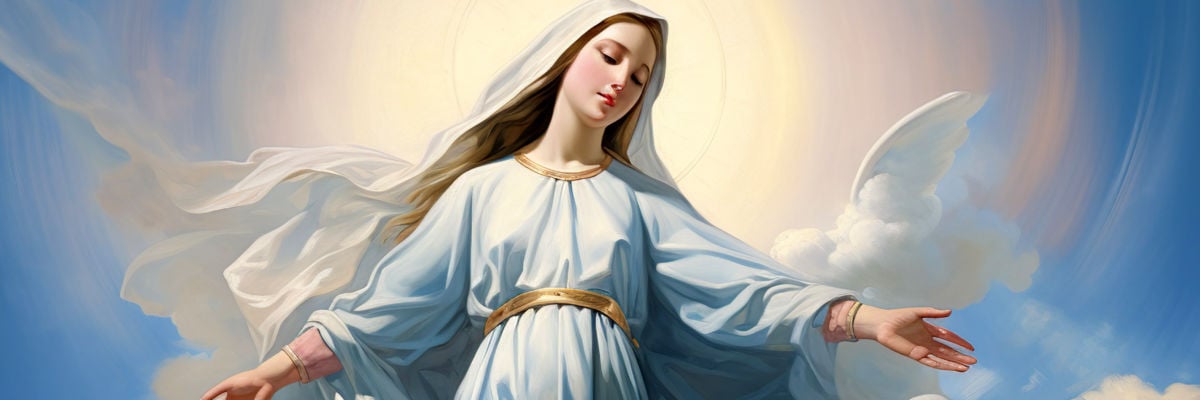
Question:
Answer:
The saints who speak of salvation coming from Mary, or her being an advocate for us, point out that Christ has the power to damn sinners but Mary, because she is not omnipotent and just a creature, only has the power to intercede for us and lead us to her Son. They don’t literally mean that Mary has the power to stop Christ from imposing a just sentence at the Final Judgment. St. Alphonsus Liguori says it is “not as if Mary was more powerful than her Son to save us, for we know that Jesus Christ is our only Savior, and that he alone by his merits has obtained and obtains salvation for us” (The Glories of Mary, 112).
God has given us the dignity of being able to work with him to bless other people, which includes blessing others with the perseverance that leads to eternal life. St. Paul even speaks about husbands and wives saving one another (1 Cor. 7:16). We must also remember the endearing exaggeration in these devotions, or as the Catholic convert Cardinal John Henry Newman put it,
What mother, what husband or wife, what youth or maiden in love, but says a thousand foolish things, in the way of endearment, which the speaker would be sorry for strangers to hear; yet they are not on that account unwelcome to the parties to whom they are addressed (Letter to Pusey).
Jesus talked about cutting off your hand if it causes you to sin (Matt. 5:30) and Paul wished his enemies would castrate themselves (Gal. 5:12), but only critical atheists dead set on refuting the Bible take these statements literally. The rest of us recognize the use of hyperbole to drive a point home. And the same is true of veneration of Mary and the saints, even calling Mary “our life, our sweetness, and our hope.”
Catholicism teaches that when Christ died on the cross Jesus’ words, “Woman, behold, your son!” (John 19:26), apply to more than the apostle John. Mary became a mother of all Christians who prays for their salvation (see Rev. 12:17). The second-century Church Father St. Irenaeus compared Mary to Eve, because both were given the opportunity to say yes to God with results that would affect the whole human race.
As we know, Eve said no and brought sin and death into the world for human beings. Mary said, “Let it be to me according to your word” (Luke 1:38), and brought the author of life himself into the world. That’s why Irenaeus said of the Blessed Mother, “The knot of Eve’s disobedience was untied by Mary’s obedience,” and, “Being obedient she became the cause of salvation for herself and for the whole human race.”



